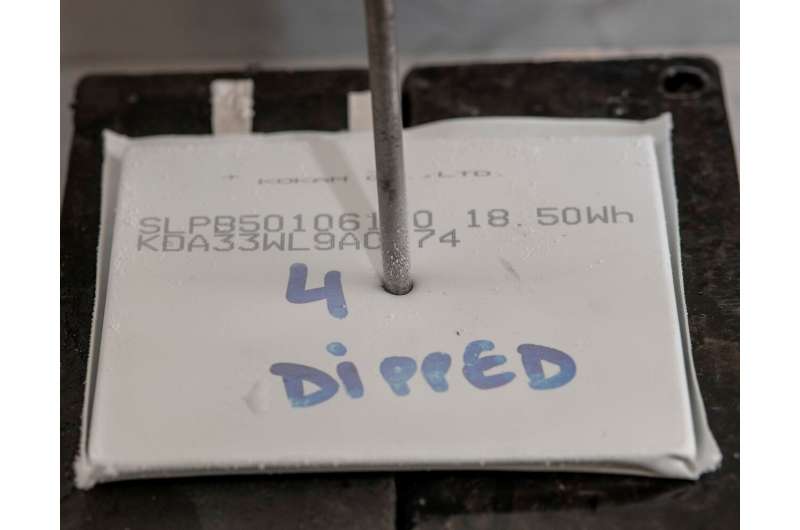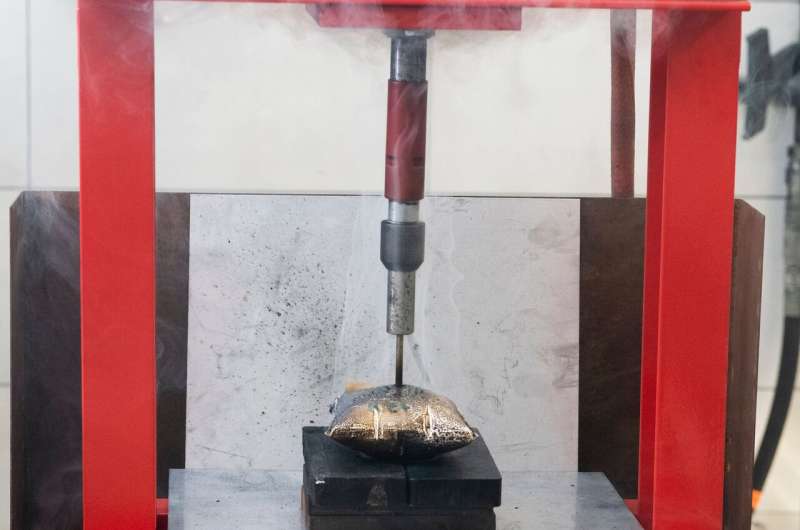Car batteries can be frozen for safer transportation

Currently, transporting damaged and defective car batteries is an expensive process as they need to be placed in an explosion-proof box, which costs thousands of pounds. However, researchers from WMG at the University of Warwick in collaboration with Jaguar Land Rover engineers have been able to freeze batteries with liquid nitrogen.
An explosion-proof box to transport a typical Tesla-sized battery costs €10,000 and a further €10,000 for the UN accreditation, however, the ability to transport them in plastic containers which cost a couple of hundred pounds has been made more accessible thanks to researchers from WMG at the University of Warwick.
In the paper, "Cycle life of lithium ion batteries after flash cryogenic freezing," published in the Journal of Energy Storage, researchers report that cryogenic freezing does not reduce energy capacity of lithium ion batteries or affect cycle or service life, and could be transported in a safer way.
As the sales of electric vehicles increase, there is more concern for the transportation of damaged and defective lithium ion battery packs. Currently, it is an expensive process, as they are put in an explosion-proof box that costs €10,000 and a further €10,000 for U.N. accreditation, for which EV manufacturers are picking up the bill.
Explosion-proof boxes are used to contain the battery in case it goes into thermal runaway, an overheating condition that can lead to violent explosions and the release of toxic gases. However, cryogenically flash-freezing the batteries completely removes the risk of an explosion, and could therefore mean they can be transported safely in a plastic box.

Researchers who were part of the ELEVATE project tested the batteries' activity before and after they froze cells with liquid nitrogen. They also drove nails through the frozen cells to test their safety, and showed that their performance was not affected after freezing.
When being transported, batteries must be kept in a lorry at -35 degrees. However, the amount of packaging is significantly less than explosion-proof boxes, making the process more sustainable.
Dr. Thomas Grandjean from WMG, at the University of Warwick says, "Transporting damaged and defective batteries is an expensive and unsustainable process. However, being able to freeze them with liquid nitrogen could save thousands of pounds and help electric vehicle manufacturers be more sustainable. We tested the batteries in the most extreme abuse conditions, such as by driving nails through the cells and inducing external short circuits, proving that the freezing process is effective and safe."
More information: Thomas R.B. Grandjean et al. Cycle life of lithium ion batteries after flash cryogenic freezing, Journal of Energy Storage (2019). DOI: 10.1016/j.est.2019.100804


















